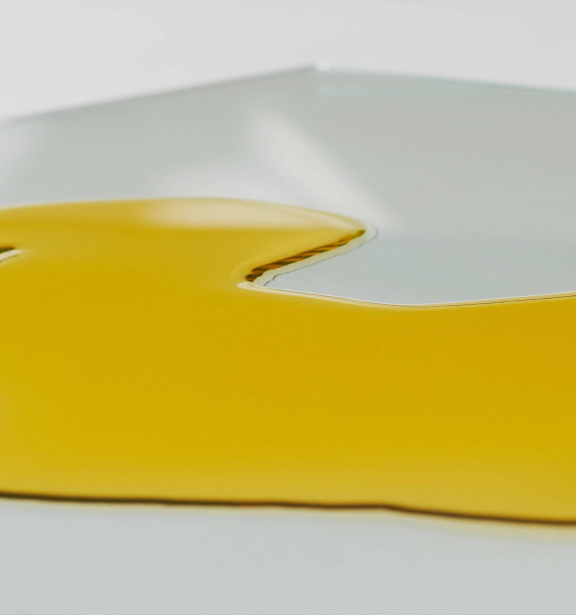If you’ve ever bought cannabidiol (CBD) oil and looked at the ingredients list, you’ve probably noticed there’s more than just hemp extract in there. While some ingredients may be cause for concern, there’s one common essential ingredient found in CBD oils that serves an important role—a CBD carrier oil.
If you’re new to CBD oil or are looking to understand more about what’s in your CBD products, we'll explain what you need to know about CBD carrier oils, including what they are and why they matter, the most common carrier oils you’ll come across, and the pros and cons of each.
What Are CBD Carrier Oils?
Carrier oils are an essential ingredient in CBD oils because they’re responsible for carrying and delivering the CBD and other cannabinoids to tissues in your body. They also can be used in non-oil CBD products, like edibles. In addition to the unique potential benefits each carrier oil may provide, CBD carrier oils serve two main purposes:
-
Enable ease of dosing: From the start, CBD needs a carrier oil to be absorbed into the bloodstream, so you will always find a carrier oil with CBD doing just that—carrying it into and throughout your body. Additionally, having a mixture of a carrier oil and CBD allows you to easily measure out a dose using a dropper with the appropriate markings which ultimately helps with consistent and easy dosing.
-
Stabilize and increase CBD’s bioavailability: Water-soluble compounds can travel directly through your gut lining into your blood because blood is water-based. Fat-soluble compounds, like CBD and other cannabinoids, can’t travel directly into the bloodstream. Instead, your digestive tract sends them into fatty tissues to be distributed throughout your body via the lymphatic system.
The takeaway is that carrier oils are used to stabilize and increase the bioavailability of CBD. Bioavailability is the ability of a substance like CBD to be absorbed and used by your body. Basically, this means the degree and rate of absorption are increased when carrier oils are used.
Common CBD Carrier Oils
The most common carrier oils you’ll come across when looking at CBD oils are medium-chain triglyceride (MCT) oil, hemp seed oil, olive oil, and avocado oil—each of which has its own set of benefits and drawbacks.
MCT Oil
MCT oil is a supplement made from a type of fat called medium-chain triglycerides and is derived from coconut oil or palm oil. Due to the shorter length, MCT oil is more easily digested than longer-chain fatty acids. While some oils require stomach acid or bile to be broken down and utilized by the body, MCTs do not. They are absorbed directly and transported rapidly to the liver and broken down.
Pros:
-
Absorbed quickly into the body.
-
No unpleasant flavor.
-
Light, thin oil (lower viscosity).
-
Less expensive than some carrier oils.
-
Metabolism-revving superfood.
-
May promote weight loss.
Cons:
-
May be more processed than other oils.
-
Fewer nutrients than some carrier oils.

Hemp Seed Oil
Hemp seed oil, often confused with hemp oil, comes from cold-pressing the seeds of the hemp plant and has no more than trace amounts of CBD and no THC. Instead, hemp seed oil has polyunsaturated fatty acids such as omega-3 and omega-6, vitamins, and minerals.
Pros:
-
May promote cardiovascular health by improving total cholesterol, high-density lipoprotein cholesterol, low-density lipoprotein cholesterol, and triglycerides.
-
May improve skin conditions.
-
May relieve constipation.
-
May improve gastrointestinal conditions.
Cons:
-
Strong flavor that some people find unpleasant.
-
More expensive compared to MCT oil.
-
Potential negative side effects such as nausea, diarrhea, and throat irritation.
-
Lower solvency than MCT oil (may not be suitable for higher potency CBD oils).
Olive Oil
While you probably only know olive oil as a cooking oil, it’s also used commonly as a CBD carrier oil. Olive oil primarily contains long-chain triglycerides, meaning it takes more time to break down in the digestive system than carrier oils with shorter structures.
Pros:
-
Rich nutrient profile.
-
May promote cardiovascular health.
Cons:
-
Thicker oil (higher viscosity) can make measuring doses difficult.
-
Lower solvency than MCT oil (may not be suitable for higher potency CBD oils).
-
Absorbed more slowly in body compared to many other carrier oils.
Avocado Oil
Avocado oil has become popular for cooking because of its rich flavor and health properties but has also become a common CBD carrier oil.
Pros:
-
Pleasant flavor, often described as nutty.
-
Rich nutrient profile.
Cons:
-
Thicker oil (higher viscosity) can make measuring doses difficult.
-
Much more expensive than most carrier oils.
Discover Feals
At Feals, we’re committed to your health and wellness journey. We’re not only dedicated to providing you with the highest quality CBD products possible, but also providing education, guidance, and support along the way. You deserve a better way to feel better and we’re here to help you find that.
We use USDA-certified organic MCT oil in both our CBD oils and CBD mints to stabilize and increase CBD’s bioavailability and provide you with the best CBD experience possible. If you still have questions about CBD carrier oils or why we use MCT oil in our products, our CX team would be happy to answer any questions you may have.
To learn more about CBD carrier oils—or about what Feals can do for you—call our CBD hotline at 844-311-9090 or check out our products today.
These statements have not been evaluated by the Food and Drug Administration. This product is not intended to diagnose, treat, cure, or prevent any disease. This article is for informational purposes only. It is not, nor is it intended to be, a substitute for professional medical advice, diagnosis, or treatment and should never be relied upon for specific medical advice.

